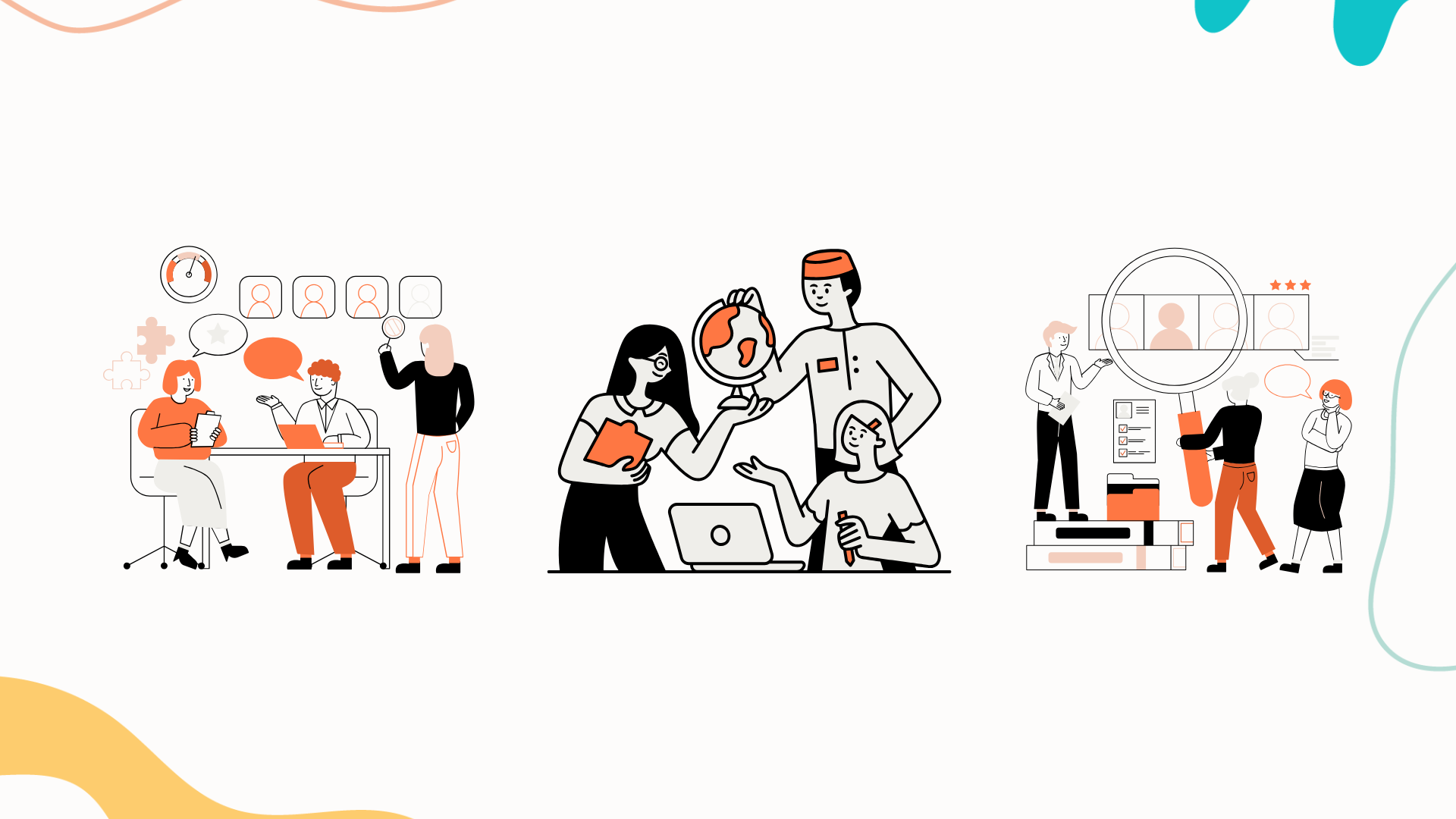
Human Resources (HR) has long been considered the “heart” of any organization. It is not only about managing people but also about building company culture, retaining talent, and creating motivation for sustainable growth. For many young professionals, especially fresh graduates or career changers, HR is an appealing career option.
However, “working in HR” is not simply about posting job ads or conducting interviews. Behind this role lies a wide range of responsibilities that require strong skills, solid knowledge, and practical experience. A well-designed CV may help you pass the initial screening, but to truly impress recruiters and succeed in the long run, you need much more.
In this article, Greyfinders Vietnam shares practical insights to help young candidates understand the HR profession, prepare the right skills, and position themselves as strong applicants when pursuing a career in HR.
1. Understanding the key HR functions
A common misconception is that HR is all about recruitment. In reality, HR is a broad field with several specialized areas:
• Recruitment: Managing the end-to-end hiring process—from sourcing and screening to interviewing and onboarding. This is often the entry point for many young professionals entering HR.
• Compensation & Benefits (C&B): Handling payroll, allowances, and employee benefit policies. This role requires strong analytical skills and high accuracy.
• Training & Development: Designing training programs, improving employee skills, and supporting professional growth. A good fit for those who enjoy teaching, mentoring, and knowledge sharing.
• HR Business Partner (HRBP): Acting as a strategic partner to business units, aligning HR policies with overall business objectives.
By understanding these functions, you can identify which career path best fits your interests and demonstrate to employers that you’ve done serious research.
2. Core skills needed to succeed in HR
HR professionals must be versatile, with a combination of soft and hard skills:
• Communication skills: Essential for building trust, conducting interviews, resolving conflicts, and negotiating with employees.
• Analytical thinking: Especially important in C&B or HRBP roles where data-driven decision-making is key.
• Time and task management: HR often juggles multiple tasks at once, from contracts and employee relations to interviews and reports.
• Adaptability: People are complex; there is no “one-size-fits-all” formula in HR. Each situation requires flexibility and empathy.
• Digital skills: Proficiency in HR software (HRM, ATS), Excel, and even AI tools help HR professionals gain a competitive edge in today’s job market.
3. Foundational knowledge every HR applicant should have
Beyond soft skills, a solid foundation of HR knowledge is critical:
• Labor law basics: Understanding contracts, working hours, employee rights, and termination policies.
• Insurance regulations: Familiarity with social, health, and unemployment insurance procedures.
• Job descriptions (JD): Writing clear and engaging JDs to attract suitable candidates.
• Corporate culture: HR plays a vital role in shaping and sustaining organizational culture. Understanding this helps you align employees with company values.
Applicants who can demonstrate awareness of these basics will always stand out in interviews.
4. Preparing before applying for an HR position
Preparation is key to building credibility and competitiveness:
• Build a strong CV: Highlight relevant experiences such as volunteer work, student clubs, or assisting in recruitment projects.
• Internships and small projects: Practical experience—no matter how small—adds real value to your CV.
• Find a mentor: Guidance from experienced HR professionals helps you avoid common mistakes and set a clear career direction.
• Research the company: Learn about the organization’s size, industry, and culture. Employers appreciate candidates who show genuine interest and alignment.
5. Common mistakes young candidates make when applying for HR
Some frequent pitfalls include:
• Thinking HR is only about recruitment. This limited perspective can hurt you in interviews.
• Not knowing basic HR terminology. Terms like KPI, C&B, onboarding, or employee engagement should be second nature.
• Being too theoretical. Employers favor candidates with practical exposure, even if it’s just small projects.
• Weak communication. Since HR is people-focused, poor communication is a major red flag.
6. Emerging HR trends to be aware of
The HR landscape is evolving rapidly with technology and new workplace models:
• HR Tech & AI: Tools for CV screening, AI chatbots for candidate queries, and workforce analytics are becoming standard.
• People Analytics: Data-driven HR decisions, from predicting turnover rates to improving employee engagement.
• Hybrid Work models: Balancing remote and in-office work requires HR to rethink productivity and performance management.
• Employee Experience (EX): Companies increasingly treat employees like “internal customers,” investing in their overall experience to retain top talent.
Being aware of these trends—and referencing them in interviews—can help you position yourself as a forward-thinking candidate.
Conclusion
HR may not be the easiest career path, but it is one of the most rewarding for those passionate about people and organizational growth. With the right preparation, a strong mix of skills, and an understanding of industry trends, young professionals can stand out from the crowd and secure their place in HR.
At Greyfinders Vietnam, we believe that small yet practical experiences can make a big difference in building a solid HR career. By preparing early and staying updated, you can create long-term value for both yourself and the organizations you serve.
More content:
Hot job opportunities via Clients of Greyfinders
Essential Soft Skills in the AI Era
Work-Life Balance vs. Career Growth: Can You Really Have Both?